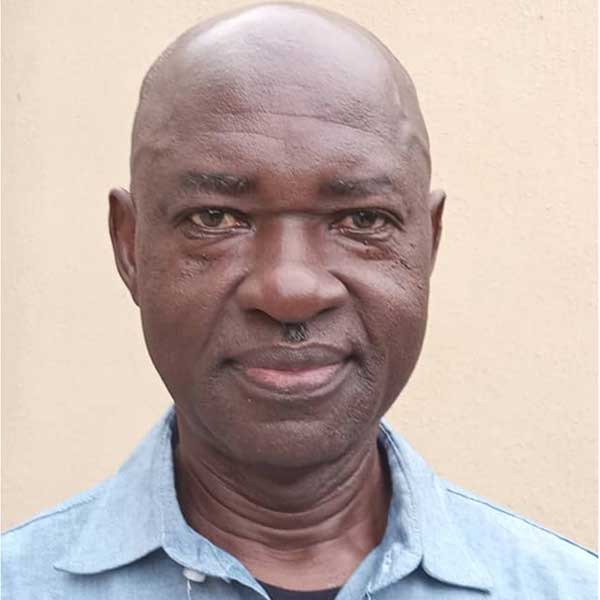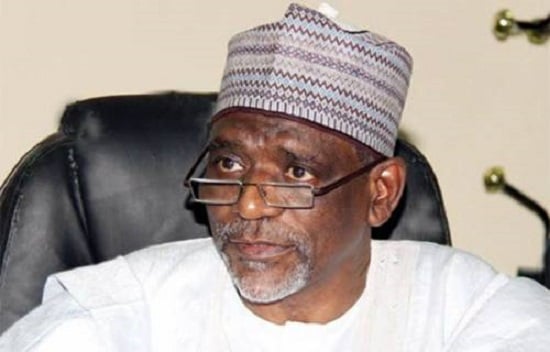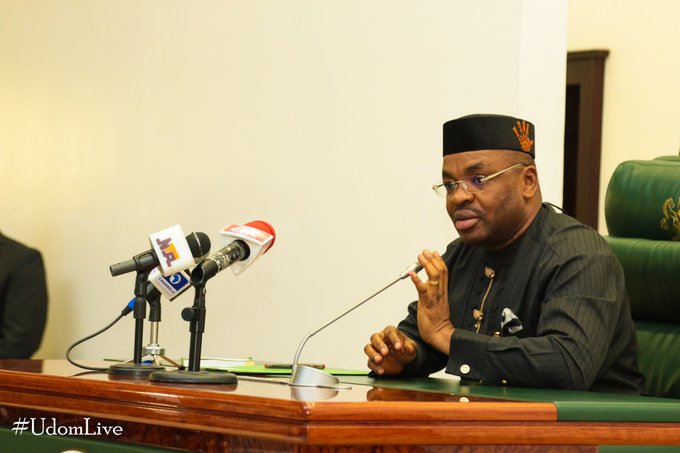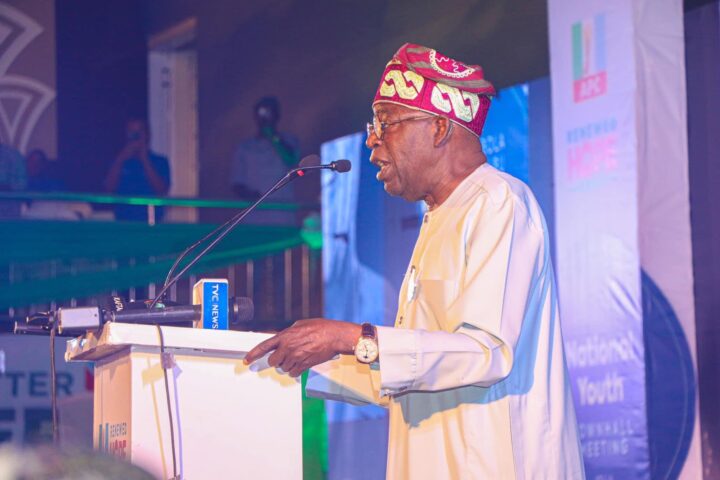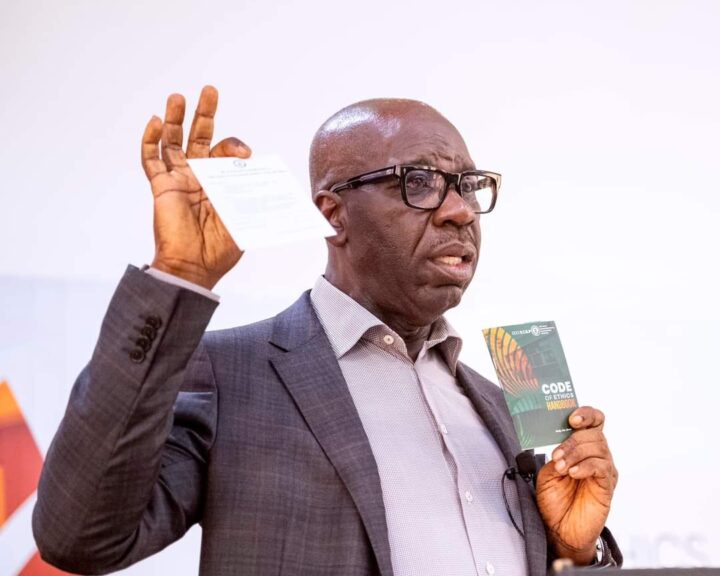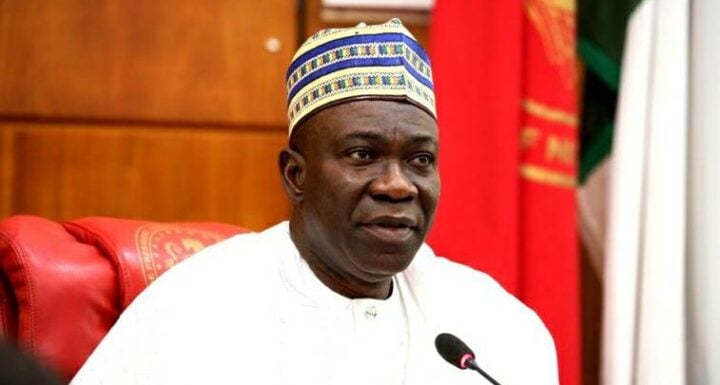Eight years as Minister of Education, Malam Adamu Adamu, has entered the records as the nation’s longest serving person in that portfolio. The significance of the attainment, on its own, cannot be wished away. But his general achievements are in the open and are subject to assessments. Be sure that much of that won’t be flattering. Most members of our university unions, for instance, even with their own obvious missteps, are poised never to remember him for good.
I respect him on at least one ground: The accountant turned education policy maker is a realist. He confessed some months ago that he was worried about his inability to accomplish a lot in his cabinet seat. Of course, some Academic Staff Union of Universities (ASUU) functionaries saw an opportunity to promptly call for his sack for what they viewed as his admission of failure. That reaction wasn’t particularly unexpected at the time as the various university stakeholders were enmeshed in conflicts and strikes, not smiling at all.
One other thing I have observed about Adamu is his sensitivity to legacies. At different fora, he makes references to the ministry’s strides under his watch and their potential places in posterity with a sense of pride. Like the day he announced the return of history to the basic education curriculum late last year. Last Tuesday, yet another chance offered itself to him during the presentation of the Core Curriculum Minimum Academic Standards (CCMAS) Book 1 Series for Nigerian universities and a book written in his honour. A day before, the minister had broken the news of the government’s approval of more private universities. The Executive Secretary of the National Universities Commission (NUC), Prof. Rasheed Abubakar, was dramatic in his praise: “As at yesterday morning, there were 111 private universities in the country, as of yesterday evening, the number had risen to 148 private universities in the country. That is, of the 148 private universities in Nigeria, 87 or 60 per cent came during Adamu Adamu as Minister of Education.” When reporters wanted to know the rationale behind what seemed to be the prioritisation of quantity in the face of the obvious shortcomings in the sector, Adamu declared, “We need more universities. The existence of the many universities should not deter the creation of new ones. Besides, these are private universities!”
A round of applause for the former newspaper editor and columnist! “Not so fast,” I can hear someone screaming back. Less than two weeks to the end of this administration, its desire to leave positive thoughts behind in the minds of Nigerians has taken dizzying, crazy dimensions. A quick digression, here. The Ministry of Aviation has been working on a functional national carrier for years without any visible fruition. The minister, Hadi Sirika, recently assured a bewildered nation to expect flights to commence before May 29. The people of this country are, of course, no strangers to living dangerously but even the die-hard optimists and friends of the policies of government among us are now convinced that the rush to launch Nigeria Air is senseless, if not insane. The lines between ego, personal ambitions and beneficial general interests are getting worryingly blurred.
Advertisement
Back to the licensing of more individuals and private organisations to establish and run their own universities. The reasons the education helmsman gave for these massive, last-minute endorsements are correct, by half. And until the questions begging for answers in the other half are addressed by the incoming government, we’re set to witness a further rubbishing of a critical segment of our national life. The privatisation and liberalisation of some aspects of the economy like energy, broadcasting and telecommunication have resulted in higher productivity and growth. That puts the people on notice that with the proper prosecution of identifiable goals, more gains await the country elsewhere, including tertiary education.
Thankfully, we’ve come a long way in this regard too. Since Chief Gabriel Igbinedion, Esama of Benin, founded Igbinedion University, Okada, Edo State in 1999, the sub-sector has shown the capacity to augment the efforts of the federal and state governments to provide university education for its teeming youth population. Today, institutions like Babcock University, Ilishan-Remo, Ogun State, Madonna University, Okija, Anambra State, Bowen University, Iwo, Osun State, Covenant University, Ota, Ogun State, American University of Nigeria, Yola, Adamawa State, Bells University of Technology in Ogun State (Nigeria’s first privately-opened university of technology), Redeemer’s University, Ede, Osun State, and Afe Babalola University, Ado-Ekiti, Ekiti State can locate themselves among Africa’s best private universities. Some of them compete favourably with the older, government-owned universities in global rankings. They’ve equally produced graduates who can hold their own grounds within and outside the country. The level of improvements in their ability to deliver and sustain outstanding quality in the midst of the cacophony of both systemic and atmospheric challenges in Nigeria is a wonder to pessimists and cynics. But we mustn’t ignore the loopholes that have come with bearing disproportionate weights. The south accounts for most of the thriving privately-established universities. It’s quite remarkable, though, that most of the 37 new ones which have just been approved are domiciled in the north. Most probably, the number of applications received is responsible for this, and not any clannish need for regional balancing. In our clime when politics is read into virtually every move, making this distinction isn’t out of joint at all.
No doubt, private universities are making a huge difference in attempting to fill the vacuum unfilled by the decades-old investments and interventions of the first two tiers of government. Nigeria’s ever-rising population, like in other parts of the world, has consequences, many times unfavourable. Admitting eligible young people into universities has been a major problem for the Joint Admissions and Matriculation Board (JAMB), parents and guardians and also the prospective candidates. The cumulative outcomes of this logjam are enormous. Up to this moment, JAMB hardly satisfies20 percent of the applicants. The necessity for non-governmental involvement in salvaging this situation is, therefore, not in contention.
Advertisement
The problems inherent in what seems like an over-simplification of a national emergency shouldn’t be overlooked, either. Successive administrations in Nigeria have a record of throwing issues and programmes open, welcoming interested parties as partners in progress, only to get feeble at the points of implementation and regulation. How equipped is NUC in policing the existing apex centres of learning? And to what extent has it dispensed that responsibility creditably? So, escalating its tentacles without the adequate evaluation of its strengths and weaknesses could even be self-defeating in the end.Only in December last year, NUC raised an alarm about the over-ambition of some lecturers, especially in private universities, to be called professors. The effects of that phenomenon on the overall work climate of these institutions are better imagined. I doubt if some of the public ones can exonerate themselves in this matter. The commission may wish to tell Nigerians the monitoring structures it has put in place as safeguards for healthy academic operations. This may actually confirm the fears in some quarters that some of the private universities may become homes to half-baked or pseudo intellectuals. Perhaps, it’s better to overlook how these upcoming ivory towers hope to fill their faculty and skilled non-academic positions soon.
The hurdles even go way beyond that. If governments, being highest spenders, are struggling with funding, what’s the fate of these fresh private entrants? Some of them are well-known business hubs where the sole consideration is money. Such environments can’t be trusted to encourage optimal intellectual pursuits. Some time ago, desperate calls started coming from various angles for them to be given access to the Tertiary Education Trust Fund (TETFUND) meant for public universities. That’s not a good sign.
Ekpe, PhD, is a member of THISDAY Editorial Board.
Advertisement
Views expressed by contributors are strictly personal and not of TheCable.
Add a comment
